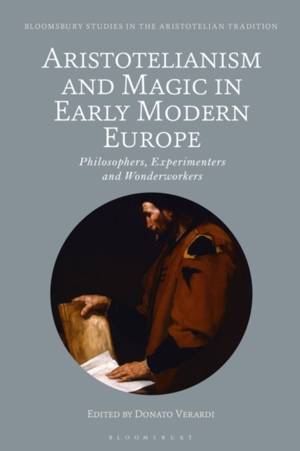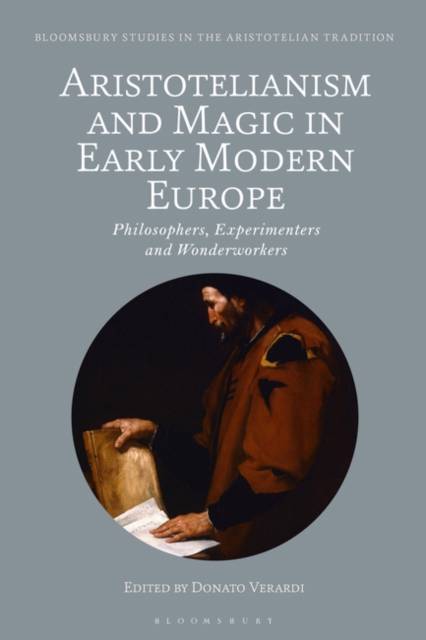
- Afhalen na 1 uur in een winkel met voorraad
- Gratis thuislevering in België vanaf € 30
- Ruim aanbod met 7 miljoen producten
- Afhalen na 1 uur in een winkel met voorraad
- Gratis thuislevering in België vanaf € 30
- Ruim aanbod met 7 miljoen producten
Zoeken
Aristotelianism and Magic in Early Modern Europe
Philosophers, Experimenters and Wonderworkers
€ 203,95
+ 407 punten
Omschrijving
Reframing Aristotle's natural philosophy, this wide-ranging collection of essays reveals the centrality of magic to his thinking. From late medieval and Renaissance discussions on the attribution of magical works to Aristotle to the philosophical and social justifications of magic, international contributors chart magic as the mother science of natural philosophy.
Tracing the nascent presence of Aristotelianism in early modern Europe, this volume shows the adaptability and openness of Aristotelianism to magic. Weaving the paranormal and the scientific together, it pairs the supposed superstition of the pre-modern era with modern scientific sensibilities. Essays focus on the work of early modern scholars and magicians such as Giambattista Della Porta, Wolferd Senguerd, and Johann Nikolaus Martius. The attribution of the Secretum secretorum to Aristotle, the role of illusionism, and the relationship between the technical and magical all provide further insight into the complex picture of magic, Aristotle and early modern Europe. Aristotelianism and Magic in Early Modern Europe proposes an innovative way of approaching the development of pre-modern science whilst also acknowledging the crucial role that concepts like magic and illusion played in Aristotle's time.Specificaties
Betrokkenen
- Uitgeverij:
Inhoud
- Aantal bladzijden:
- 240
- Taal:
- Engels
- Reeks:
Eigenschappen
- Productcode (EAN):
- 9781350357167
- Verschijningsdatum:
- 13/07/2023
- Uitvoering:
- Hardcover
- Formaat:
- Genaaid
- Afmetingen:
- 156 mm x 234 mm
- Gewicht:
- 508 g

Alleen bij Standaard Boekhandel
+ 407 punten op je klantenkaart van Standaard Boekhandel
Beoordelingen
We publiceren alleen reviews die voldoen aan de voorwaarden voor reviews. Bekijk onze voorwaarden voor reviews.







